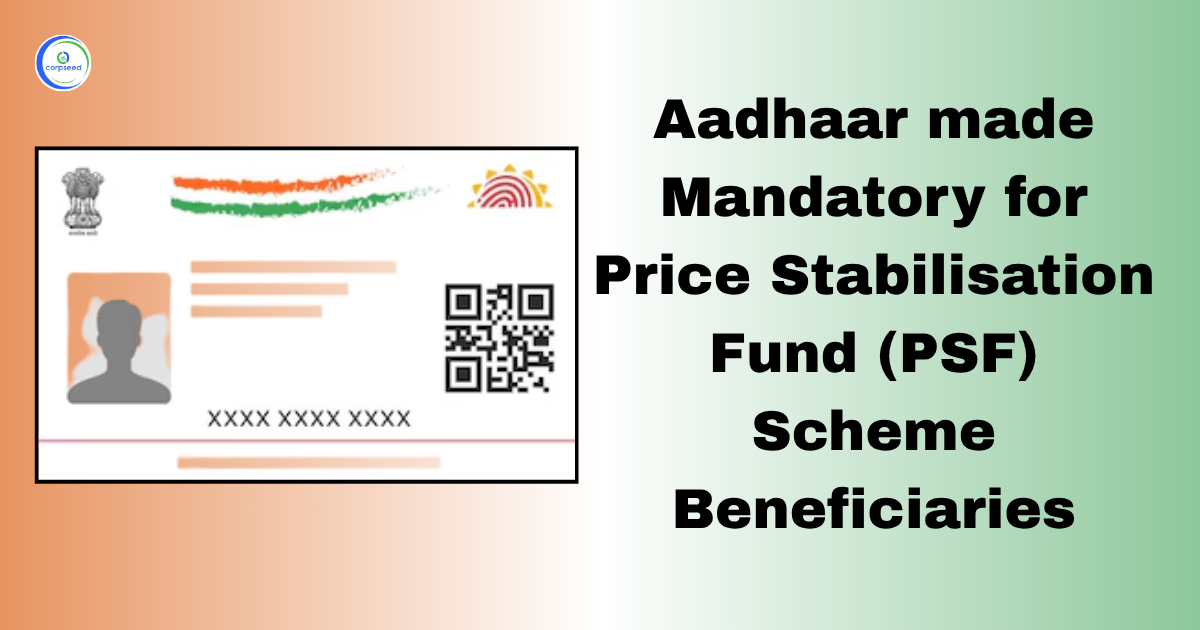Introduction
The role of infrastructure is very crucial for agriculture development and for taking production to the next level. It is through the development of infrastructure at the post-harvest stage that the product can be utilized with opportunities for value addition and a good deal for the farmers.
Department of Agriculture, Cooperation & Farmer’s Welfare (DAC&FW) has formulated the Central Sector Scheme to make a medium - long term debt financing facility for investment in able to make projects related to postharvest management Infrastructure and community farming assets through incentives and also help with the financial support.
Post-Harvest management is a system of handling, storing and transporting agricultural commodities after the harvest is done. For some commodities such as coffee and cocoa, post-harvest activities may include drying and fermenting also. The importance of post-harvest management it helps to strengthen the action chain that produces, transports, and processes food and all the products which are related that give nourishment to the world population.
The most important goal of post-harvest handling is to keep the product cool, to avoid loss of moisture and decrease undesirable chemical changes, and avoids physical damage such as bruising, to delay spoilage.
Mostly, post-harvest management allows the effective planning of how to effectively manage finite resources i.e. through effective post-harvest management, action can be done in the present so that the environment can sustain future generations.
Types of Post-Harvest Management Projects:
- Supply chain services including e-marketing platforms
- Warehouses
- Silos
- Packaging units
- Assaying units
- Sorting & Grading units
- Cold Stores and Cold Chain
- Logistics facilities
- Primary processing centers
- Ripening Chambers
- Waxing plants
Credit Guarantee coverage will be accessible for eligible borrowers from the financing facility under Credit Assurance Fund Trust for Micro & Small Enterprises (CGTMSE) scheme for loan up to 2 crore. The fee for the coverage which will be paid by the Government.
Post-harvest management can be difficult task for small-holder farmers in many parts of world compared to industrial-scale agriculturists. Small-holders generally work with partial resources like manpower, financing, inputs and others. Small-scale agriculture is more sustainable as it puts less pressure on the environment.
Who Can Apply:
- Primary Agricultural Credit Societies (PACS).
- Marketing Cooperative Societies.
- Farmer Producers Organizations (FPOs).
- Farmers.
- Self-Help Group (SHG)
- Joint Liability Groups (JLG).
- Multipurpose Cooperative Societies.
- Agri-entrepreneurs, Startups.
- Central/State agency or Local Body sponsored Public-Private Partnership Projects.
The National, State and District Level Monitoring Committee to ensure real-time monitoring and effective feedback about the implementation of the proposed scheme.
The National Level Monitoring Committee (NLMC):
The national level Monitoring Committee (NLMC) guides and helps for the implementation of the project. It approves the guidelines for the implementation of the project and the National level Implementation Committee (NLIC) examines and also recommends the guidelines for the implementation of the project.
The State Level Monitoring Committee (SLMC):
State level Monitoring Committee (SLMC) will also guide for the implementation of the NIMC guidelines at the state level and it provides feedback. It gives guidance to the implementation of the scheme in the state. It will also examine and approve the selected list of projects for inclusion in the scheme in consultation with DLMC.
The District Level Monitoring Committees (DLMC):
The DLMC would be the first line to implement and to display system within the overall framework. It will also examine the proposal and give recommendations to SLMC for consideration. DLMC will also maintain the Dashboard which is in collaboration with PMU.
It is also responsible for the smooth implementation of the scheme and which also resolves any problems at the district level. In the process of sorting out implementation problems, the Group would be supported by the district administration wherever required.
Project Management Units (PMU):
- Farmers Welfare Programme Implementation Society under DAC&FW will provide PMU
- Support to the scheme at the central level and state PMUs of PM KISAN at the state level.
- Services of knowledge partners will be engaged to identify clusters including export.
- Clusters and gap in supply chain to target projects and prepare viable project reports.
- Support the beneficiaries.
- PMUs will provide handholding support for the implementation of the scheme.
- It will monitor the progress closely with the support of District Level Monitoring Committee (DLMC).
- PMU will maintain the dashboard in collaboration with DLMC.
This portion of the site is for informational purposes only. The content is not legal advice. The statements and opinions are the expression of author, not corpseed, and have not been evaluated by corpseed for accuracy, completeness, or changes in the law.
BOOK A FREE CONSULTATION
Get help from an experienced legal adviser. Schedule your consultation at a time that works for you and it's absolutely FREE.




_for_Compressed_Biogas_(CBG)_Corpseed.webp)




